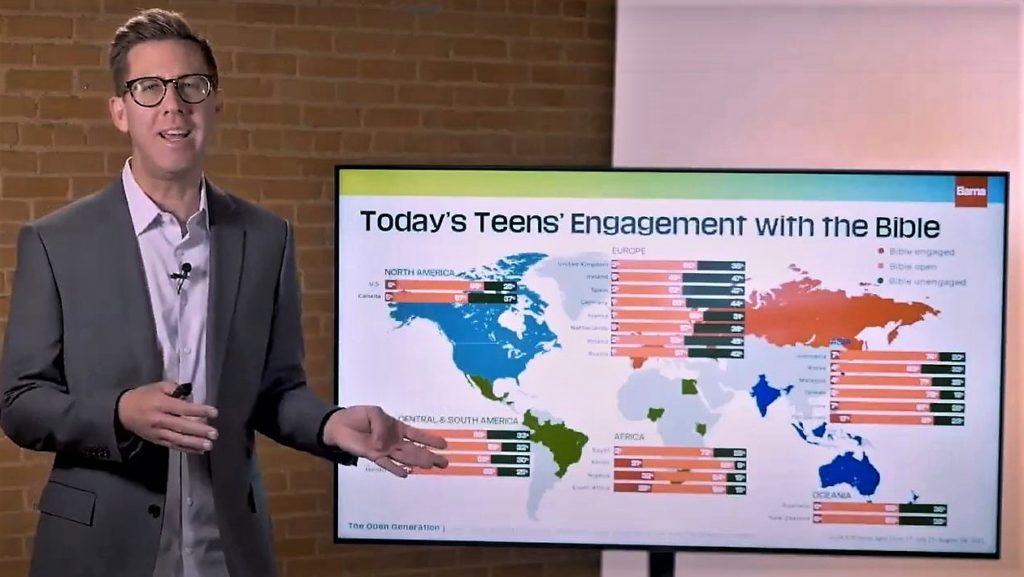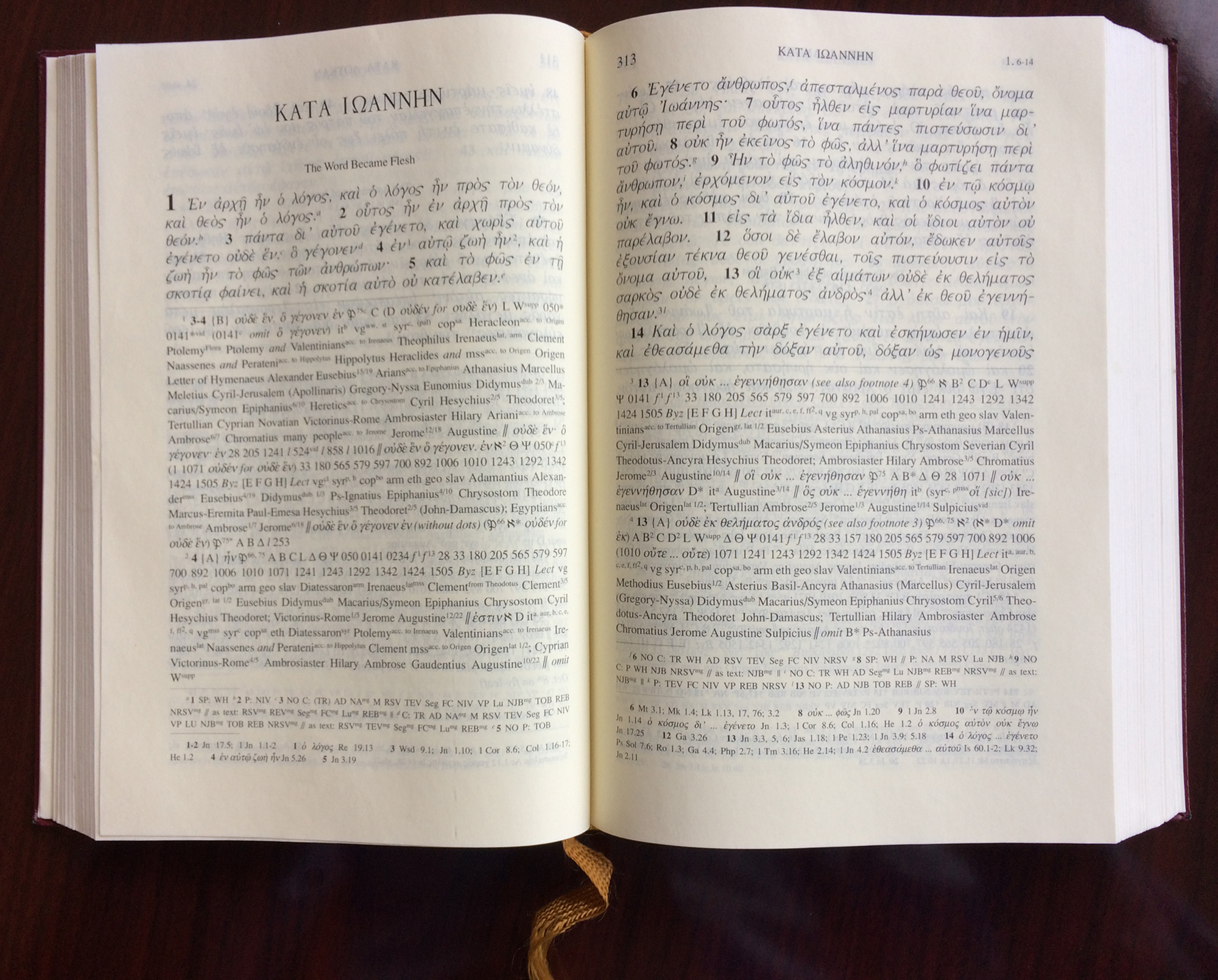
DALLAS (BP) — Bryan Loritts, teaching pastor of The Summit Church and a new member of the North American Mission Board’s Send Network leadership team, pinpoints the crux of the latest data release from a global Barna study on how teens embrace the Bible.
“What is it about this book?” Barna quotes a question Loritts posed to Southeastern Baptist Theological Seminary students in a 2013 sermon. “What you and I hold in our hand are the sovereign [exhalations] of a holy God. What makes this book no ordinary book is that this book is breathed out by God. … The quality of our lives is seen in direct proportion to our willingness to submit to this book.”
In volume two of “The Open Generation” survey gauging the identity, values and views of teenagers globally, Barna and its partners in the study address how teens view the Bible.

“Our research shows that teens generally have positive opinions of the Bible, and they’re curious about it,” Barna CEO David Kinnaman said in a press release announcing the data. “Despite these high views, engagement with the Bible remains low, and we see many teens express uncertainty about how Scripture can influence their lives and the world around them.
“Globally, our research shows that teens are motivated to make an impact with their lives, are looking for community and fulfilling relationships, and seeking purpose and direction for their lives,” Kinnaman said. “This research presents areas of opportunity for church leaders to help teens connect their questions to the Bible and the answers it provides.”
While 59 percent of teenagers have a Christian Bible in their home – and 88 percent of those in a language and version they can understand – 41 percent never use a Bible, Barna reported in the study of 13-to 17-year-olds. About 20 percent of teenagers read the Bible at least weekly, Barna said, regardless of their faith affiliation.
Among teenagers who’ve made a personal commitment to follow Jesus, 23 percent read their Bible daily, with most of them reading their Bible at least weekly. Nearly a third, 30 percent, qualify as Bible engaged, defined as those who hold a high view of Scripture and read the Bible several times a week.
Higher rates of Bible engagement equate to a higher application of Jesus’ teachings and a higher incidence of perceived encounters with God’s love. Among those who read the Bible, 39 percent say it motivates them and 38 percent say it makes them feel loved.
Bible engagement correlates with a strong desire and empowerment to make a difference in the world. While 43 percent of teenagers who describe themselves as Christian want others to see Jesus in them, the percentage is nearly double (81 percent) among Christian teens who are Bible engaged.
“This is such an exciting set of data for us because it shows that something’s happening here beneath the surface,” Kinnaman said in an Oct. 12 webinar on the data. “Throughout this whole data presentation, we’ve been able to see that these teenagers who are Bible engaged have a more full life when it comes to their self-perceptions, their views of their community, their friendships, that sort of vibrancy of their faith.
“And what does this now mean for us as leaders, as stakeholders and even those in this generation as we try to partner with what God is doing?”
Many teens, 44 percent, believe the Bible is holy; 41 percent believe it is inspired by God, 40 percent believe it is good and 39 percent believe it is meaningful. But more than a fifth (22 percent) of teens who own or read the Bible say they don’t understand Scripture.
“Although many teens have access to the Bible, without proper context of its benefits or function, it’s simply another book on a shelf,” Barna wrote in the report. “Presented with a selection of statements to describe the Christian Bible, half of teens say it is ‘the word of God.’ Beyond this, about one in 10 believes the Bible is either the inspired word of God without errors (11 percent), the inspired word of God with errors (12 percent) or another book of teachings (11 percent). Nine percent aren’t sure.”
Bible engagement declines with age among teenagers globally, Barna said, but was unable to determine the causes.
“No doubt, these are formative, quickly evolving years for teens,” Barna surmised, “and this trend hints at the urgency and intentionality needed to plant young people in God’s word as early as possible. Just as church leaders can’t assume a teen’s age indicates maturity in Bible engagement and scriptural understanding, it’s important not to assume a teen’s personal commitment to follow Jesus will equate to daily Bible reading.”
The study’s third volume, focused on how teens around the world can make an impact, will be released Oct. 19. Partners in the study are Alpha, Biblica and World Vision, with support from Christian Vision, Bible Study Fellowship, Christ In Youth and the Association of Christian Schools International.
The study conducted in 2021 included 24,870 teens from 26 countries including the U.S., Canada and European, Asian, Latin American, African and Oceanian countries.
























